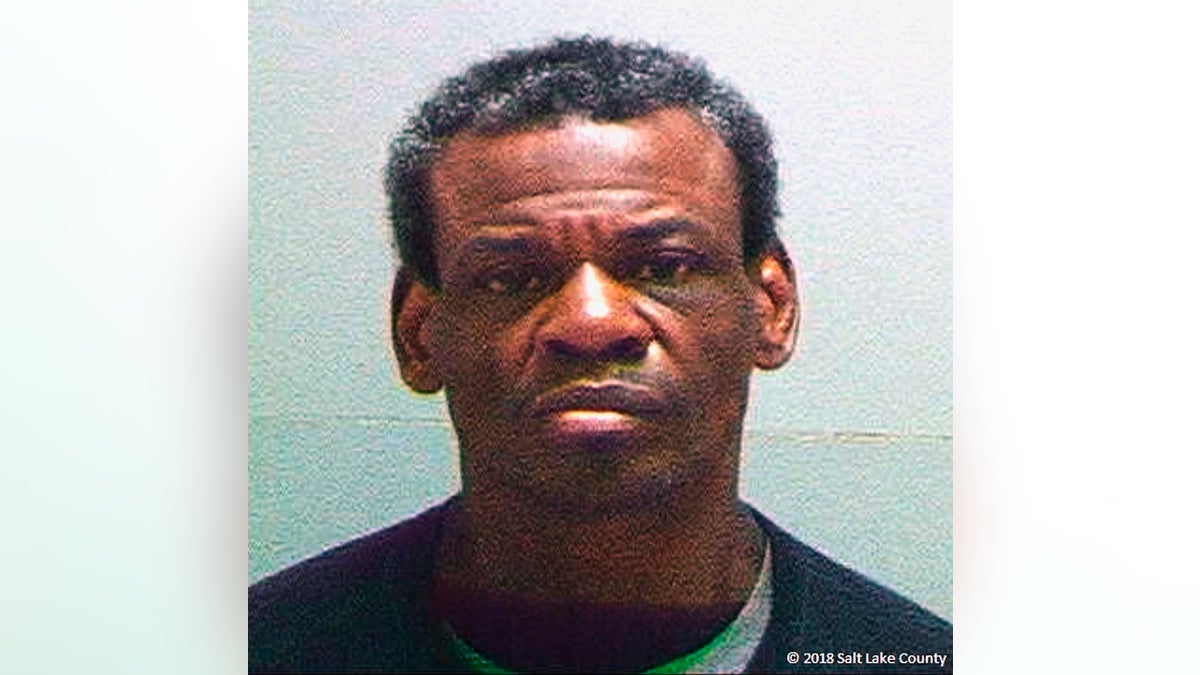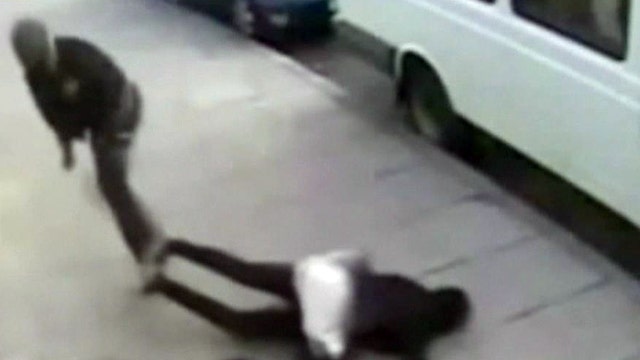
Alan Dale Covington is accused of attacking a man and his son after shouting "I'm here to kill a Mexican," authorities say. (Associated Press)
An attack against a Latino man and his son prompted some Utah officials to deem a state hate crime statute ineffective because it can be applied only to misdemeanors.
“The statute that we have is such an untenable and unworkable statute that we have not had a successful prosecution of a hate crime for the last 20 years at the state level,” Sim Gill, district attorney for Salt Lake County, told the New York Times. “It is worthless. It is not worth the paper it is written on.”
On Nov. 27, Alan Covington walked into Lopez Tires in Salt Lake City and shouted: “I’m here to kill a Mexican” before attacking Jose Lopez and his teenage son Luis with a 3-foot metal pole, authorities said. The younger Lopez was sent to a hospital in critical condition with lacerations and face fractures.
His father bled from his face and was “gurgling and coughing on his own blood.” He was released from a hospital Friday.
Covington, 50, an African-American, said he targeted the shop because he believed it was part of a conspiracy against him by the Mexican Mafia prison gang.
FEDERAl HATE CRIME CHARGES FILED IN KENTUCKY KROGER SHOOTING
Prosecutors have charged him with three felonies in connection with the attack, two counts of second-degree assault and unlawful possession of a weapon by a felon. He also faces two misdemeanor drug crimes, according to charging documents. He could face more than 26 years in prison.
He was being held on $100,000 bond.
Gill said the hate crime statute in Utah can be applied only to misdemeanors, meaning an assault like the one that allegedly occurred to Lopez can’t be categorized as a hate crime, he said.
“You would think a hate crime is the most egregious kind of conduct and you would want to be able to apply it that way,” he said.
Attempts have been made to amend the law, most recently in 2016, which was inspired by an attack on a group of gay men in Salt Lake City. That failed effort was led by Stephen H. Urquhart, a Republican state senator, according to the Times.
Urquhart attributed the opposition against the amendment to the Church of Jesus Christ of Latter-day Saints.
Gill said opponents of expanded hate crime laws fear a new law could "create special rights for people" or give the government the power "to police somebody's thoughts," the paper reported.
“But that’s not what is happening when we have evidence,” he said. Pointing to a case like the attack on the Lopez family, when a suspect is alleged to have explicitly stated a bias during an attack, he added, “I don’t have to speculate about what is going through your mind and what message you are sending.”
The Associated Press contributed to this report.


